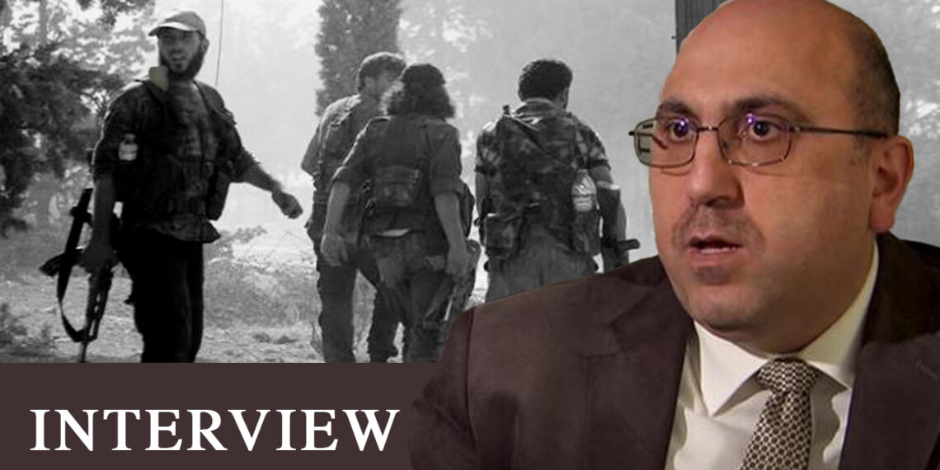Rami Abdulrahman, head of the Syrian Observatory for Human Rights (SOHR), exposed Turkey’s recruitment of Syrian mercenaries to fight against the PKK in Iraqi Kurdistan in a recent interview with Özgür Politika.

In an exclusive interview with Özgür Politika, Rami Abdulrahman, head of the Syrian Observatory for Human Rights (SOHR), shed light on Turkey’s recruitment of soldiers from Syrian territories to fight against the Kurdistan Workers’ Party (PKK) in Iraqi Kurdistan. Speaking to journalist Miheme Porgemol, Abdulrahman gave a detailed insight into the SOHR’s findings on the issue.
Abdulrahman revealed that the majority of these soldiers belong to factions such as the Sultan Murad Division, the Sultan Suleiman Shah Division, the Al-Hamza Division and other Turkish-backed militias. “We have received this information from numerous reliable sources within the Turkish-backed groups,” Abdulrahman said. “It has been confirmed that hundreds of members of these groups participated in this mission, which is considered the fourth of its kind after Libya, Azerbaijan and Niger. These fighters received full support, including military exercises, before being deployed to operations outside Syria at the behest of the Turkish authorities,” he added.
Stressing that these mercenaries were all Syrian nationals, Abdulrahman pointed out how Turkey was exploiting the poor living conditions of the lowly paid militias operating in northern Syria. “Ankara has managed to turn these militias into mercenaries by luring them with high salaries and financial incentives. These mercenaries are sent to fight on the front lines against the Kurdistan Workers’ Party in the mountains of [Iraqi] Kurdistan under the supervision of their military commanders and Turkish officers,” he said.
Abdulrahman also revealed that Ankara pays each mercenary a monthly salary of between $2,500 and $3,000 and that around 400 people have been used in this way to fight the PKK. He stressed that this process is organised by the Turkish National Intelligence Organisation (MIT) in cooperation with the leaders of Turkish-backed militias, including Abu Amsha (Mohammed Hussein Al-Jasim), the leader of the Sultan Suleiman Shah militia, who has been granted Turkish citizenship.
Reflecting on Turkey’s broader strategy, Abdulrahman noted: “Syrian mercenaries are currently fighting on the front lines in Niger. In Libya, Syrian mercenaries are still stationed in various positions. Earlier, these mercenaries were also involved in fierce clashes in the Nagorno-Karabakh”.
Abdulrahman underlined that Turkey’s actions were fuelling sectarian conflict between Arab and Kurdish citizens in Syria. “Ankara is trying to portray the situation as if Arab or Turkmen groups are siding with Turkey in an ethnically motivated war against the Kurds. This also strengthens Ankara’s ongoing efforts to change the demographics of Afrin,” he concluded.








Leave A Comment